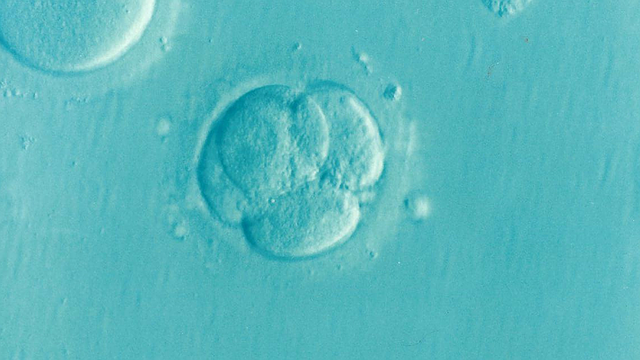The majority of women who undergo IVF treatments use fresh embryos, but that might change. A new study says that using frozen then thawed embryos might be the more successful way to do things.
In a trial of 1,508 random women getting impregnated via IVF for the first time, researchers discovered that 49.3% of those who used frozen embryos were able to give birth to babies, compared to 42% who used fresh embryos, the Los Angeles Times reports.
Over 5 million people in the world are alive thanks to in vitro fertilization, the study authors note.
IVF begins when doctors take eggs from a female and mix them with sperm, creating a fertilized egg or zygote. The zygote begins dividing itself within days, becoming an embryo. This embryo can then either be implanted in a recipient’s uterus immediately or frozen for use later.
This study is one of the broadest ones that looked at the difference between fresh and frozen embryo use in IVF, led by Dr. Zi-Jiang Chen of the center for reproductive medicine at Shandong Provincial Hospital, China. The data came from 14 medical centers across China from 2013 to 2015, and all participants were monitored throughout their pregnancies.
The researchers found an insignificant difference in pregnancy rates among women who used fresh and frozen embryos, but they did see a discrepancy in how likely the women were to carry babies to full term.
Close to 33% of women who used a fresh embryo lost the baby over the duration of their pregnancies, compared to 22% of those who had aa frozen embryo transfer.
Frozen embryos were also linked to a heavier birth weight in newborns.
All of the women in the study had been diagnosed with polycystic ovary syndrome or PCOS. This condition presents several small, fluid-filled sacs in the ovaries, similar to cysts.
PCOS is often associated with obesity and higher levels of male hormones that can lead to acne and excessive hair growth. Women with this condition often experience irregular periods and are unable to get pregnant except through IVF.
The study’s participants were divided into two groups. One received IVF from embryos that had been mixed just three days before, while the other group had the embryos frozen for a month before being impregnated.
The fact that all the women in the study had PCOS has its advantages and disadvantages when it comes to interpreting the results, according to Dr. Owen Davis, associate director of in vitro fertilization at the Center for Reproductive Medicine, Cornell Medical College.
On the bright side, the homogenous group meant that the study’s conclusions that frozen embryos lead to more live births than fresh embryos holds substantial weight. However, it is not clear if these findings can be generalized across a wider group of women.
Davis, who was not part of the study, said, “Most people doing IVF don’t have PCOS. I would speculate that the findings are translatable, but we can’t say that for sure.”
The study was not meant to determine the causes behind why frozen embryos seem to work better. But the researchers theorize that the higher success rate of freezing and thawing embryos might allow a woman’s reproductive system to “reset,” following the exposure to hormones that is given when the eggs are harvested.
The research also noted that they recorded two stillbirths and five neonatal deaths in the group that used frozen embryos, and none in the fresh group. This number may be small and of little significance, but it does warrant attention, they said.
The study authors suggest that their findings can lead to a new method of calculating IVF success rates. Currently, these registries look at clinical pregnancy rate. Because the desired result is a healthy baby, looking at live birth rates is a better way to measure IVF success.
The study was published in the New England Journal of Medicine.
























